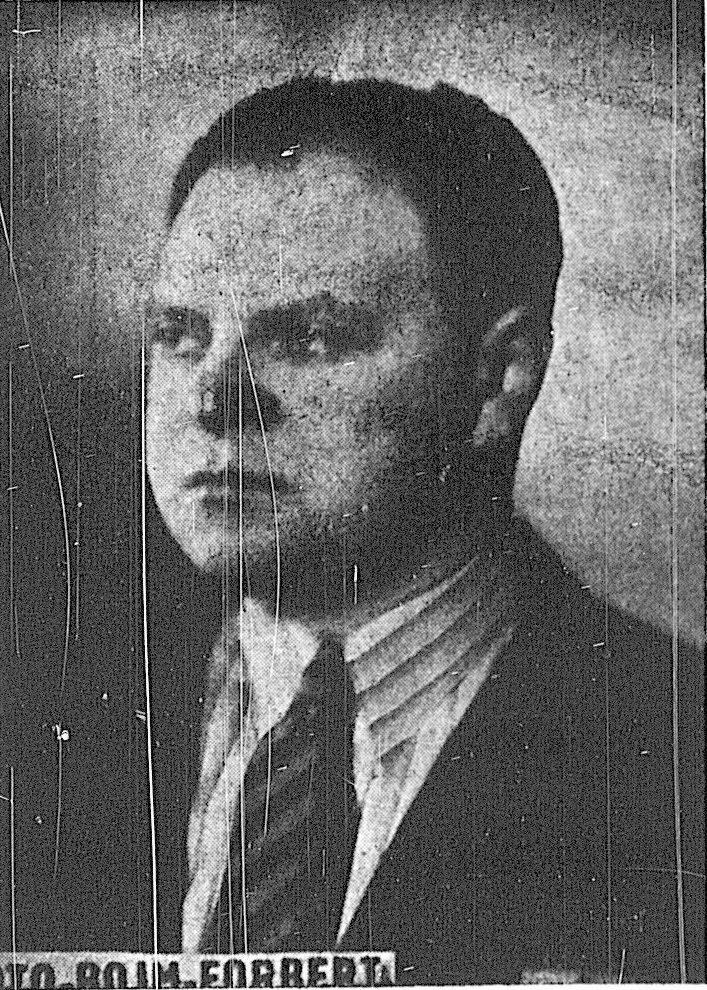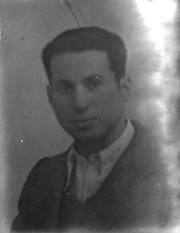Chanuka in the Warsaw Ghetto
The Jewish holiday of Chanuka commemorating the victory in 167 B.C. of the Jews over the Greek army has certain parallels to the experiences of the ghetto population under German occupation, albeit with a vastly different conclusion.
At the time of the Chanuka miracle, the land of Israel was under Greek occupation. The authorities embarked on a systematic prohibition of religious practices such as Sabbath observance and Torah study. Any person who continued to practice these fundamental aspects of the religion was persecuted. Eventually a pagan idol was placed in the Jewish Temple in Jerusalem, desecrating this most holy site.
An armed rebellion ensued with the Jewish forces eventually defeating a vastly superior army, contrary to all logical expectations. When the Temple service was subsequently resumed, only one vessel containing the ritual olive oil used to light the Menora (candelabra) was to be found, insufficient for the mandatory daily service. According to Talmudic sources, a miracle occurred and the oil burnt for eight days until a fresh supply could be acquired. In remembrance of these events Jews light candles each day for the eight days of the Chanuka holiday.
At the time of the German occupation of Poland with the Jewish population confined to ghettos and outward expression of Jewish traditions largely prohibited, many Jewish people looked to the symbolism of the Chanuka holiday and candles as a source of hope and an expression of defiance.

Reuven Feldshuh (Ben-Shem) described the communal Chanuka celebration of 1940, by the inhabitants of the building where he lived. The gathering was organised in Feldshuh’s apartment, and food for the occasion was prepared by the local women. It was arranged with certain smugglers that they would finance the event. He claims that over one hundred people attended this particular gathering (one of many similar events), and that people from other locations stayed until the morning when the curfew ended.
Feldshuh (a Rabbi) lit the candles and delivered a speech alluding to the current desperate situation with references to the ancient Chanuka story. The event maintained a festive atmosphere with musical recitals and other form of entertainment, in stark contrast to the reality of daily life under Nazi rule. Several other diarists recount similar occurrences throughout the ghetto period, at one point in defiance of the ban by Judenrat President, Adam Czerniakow, on such gatherings.

In the December 26, 1940 entry to the diary of Chaim Kaplan a similar account may be found (Scroll of Agony: The Warsaw Ghetto Diary of Chaim A. Kaplan translated into English by Abraham I. Katsh, 1965):
“Hanukkah in the ghetto. Never before in Jewish Warsaw were there as many Hanukkah celebrations as in this year of the wall. But because of the sword that hovers over our heads, they are not conducted among festive crowds, publicly displaying their joy.
Polish Jews are stubborn: the enemy makes laws but they don’t obey them. That is the secret of our survival. We behaved in this manner even in the days when we were not imprisoned within the ghetto walls, when the cursed Nazis filled our streets and watched our every move. Since the ghetto was created, we have had some respite from overt and covert spies, and so Hanukkah parties were held in nearly every courtyard, even in rooms which face the street; the blinds were drawn, and that was sufficient.
This year’s Hanukkah celebration was very well attended. We almost forgot that we are only allowed to go as far as the corner of Nalewki and Świętojerska streets. Dr. Lajfuner gave a speech full of jokes and we all laughed heartily. There was one truth in his speech which should be stressed: ‘In all the countries where they want to bury us alive, we pull the gravediggers in with us.’ Witness Czarist Russia, Poland, and Rumania. Nazi Germany will have the same fate — and in our own time.”
It would seem that the symbolism of the Jewish rebellion against the superior Greek army was also source ofinspiration for some of the fighters in the Warsaw ghetto uprising, just as their own self-sacrifice has inspired subsequent generations.
David Berman – Talmudic scholar, researcher of Jewish texts. Born in Sydney, Australia. Studied in Gateshead Yeshiva in the United Kingdom where he obtained his rabbinical ordination. After relocating to Israel, he lectured and continued his studies of Jewish law and classical Hebrew works in various institutions specialising in in-depth analysis of halacha, among them the Tzanz Talmudic Academy. He resides in Warsaw.
